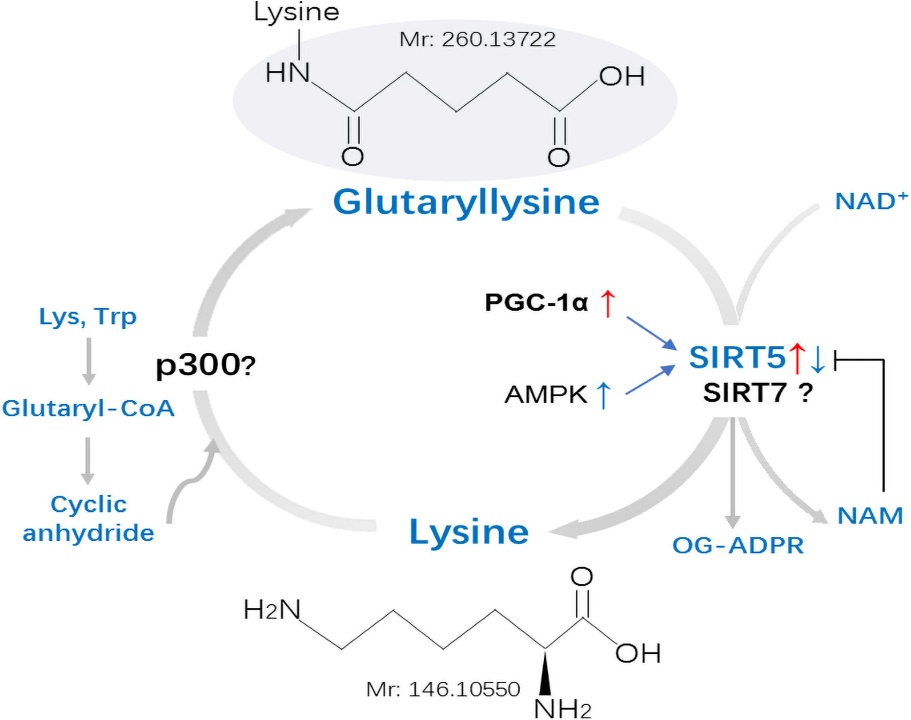
- Home
- PTMs Proteomics
- Proteomics Analysis of Glutarylation
As a leading service provider of post-translational modification (PTM) analysis services, we also offer protein glutarylation analysis services. Lysine glutarylation is a newly discovered protein PTM with reversible, dynamic and conserved characteristics. With advanced experimental techniques and experienced experts, Creative Proteomics can help our customers find new glutarylated proteins and modification sites in prokaryotes and eukaryotes.
Protein glutarylation is the process of adding a glutaryl group to a specific lysine residue, i.e., adding a 5-carbon acyl group to the lysine and changing the charge of the lysine from +1 to - 1. This protein modification may lead to changes in the structure of the protein, affecting its physiological function and disrupting any interaction between the lysine side chain of the modified protein and the negatively charged molecules. As a newly discovered protein PTM, lysine glutarylation was first identified in 2014. Lysine glutarylation can occur in human cells, mice, Escherichia coli, and Saccharomyces cerevisiae, and is widely present in eukaryotic and prokaryotic cells. An increasing number of proteins have been identified as glutarylated proteins by mass spectrometry (MS), both histones and non-histones. Lysine glutarylation has been shown to primarily involve diverse cellular functions, including mitochondrial function, oxidative damage, and oxidative injury, and is associated with various diseases, such as asthenospermia and organic aciduria.
 Fig. 1 Mechanisms
and regulation of non-histones lysine glutarylation. (Xie, Longxiang, et al., 2021)
Fig. 1 Mechanisms
and regulation of non-histones lysine glutarylation. (Xie, Longxiang, et al., 2021)
The recent development of high-resolution liquid chromatography-tandem mass spectrometry (LC-MS/MS) methods has made it possible the identification of massive glutarylated proteins. Our protein glutarylation analysis service is based on a proteomics approach that combines sensitive immunoaffinity purification and high-resolution LC-MS/MS to enable qualitative and quantitative analysis of large-scale glutarylated proteins. Our services include protein extraction and digestion, glutarylated peptide enrichment using anti-Kglu antibodies, LC-MS/MS analysis, and bioinformatics analysis, facilitating the identification of novel glutarylated proteins and modification sites.
Using computational tools and known protein interaction data, our team of experts can accurately identify the substrates of lysine glutarylation and their corresponding sites, helping our customers to quickly, cost-effectively and better understand the molecular mechanisms of lysine glutarylation.

Creative Proteomics is a CRO company focused on providing qualitative and quantitative protein PTM analysis services. Our team works closely and communicates actively to achieve our common goals of helping researchers and professionals identify and analysis PTMs in various complex samples. Contact us for more about our glutarylation analysis service. We are ready to assist you!
References
Our products and services are for research use only.